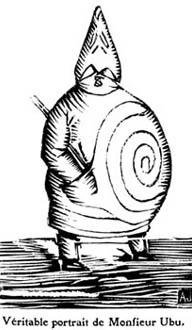User Login |
East Slope by Su Shi translated by Jeffrey Yang reviewed by Will OwenI have seen Jeff Yang twice, once in an office at New Directions, and a second time at a reading of translations at Housing Works. I can vouch for his existence. I have never seen Su Shi, but have read about him in a book on the editorial history of Tao Qian/Tao Yuanming. "Hey may or may not have been Buddhist, but he wrote a poetry that was taken up by a Buddhist writing community once it existed" Sam Lohmann says about Tao Qian, the later Buddhist writing community refering in part to Su Shi. Sam and I were talking about Eliot Weinberger's anthology of classical Chinese poetry. Eliot Weinberger was Jeffrey Yang's teacher. East Slope is a place in China that Su Shi cultivated into a food source and a poem cycle. It was translated by Jeffrey Yang into English and published by Ugly Duckling Presse, when I am sitting and writing about East Slope. I am writing about East Slope because it is a translation from a distant Chinese author using experimental forms to put the gap on display. The pages are large. Opened, the book is a poster. The background to each page is a two-color slide of rugged land forms that may be China from the library of Congress. The foreground is made up of the chinese text, which makes up the entirety of the left page, and the english text, which makes up a much smaller portion of the right page. I am interested in the use of formal techniques to make the gap between reading classical Chinese and modern English appear. The English poems are lineated and have no punctuation. There is no constant indication of where syntactic units begin or end. Links are made, spatially, logically. There are a great many casuras which create clusters of words working normally. Both the right and the left margins are strictly maintained, calling to mind 'justified' formatting in newspaper articles. Capitalized letters are used at the begining of certain word clusters, and indicate a new unit of thought. East Slope concerns itself with East Slope in the time Su Shi spent there in internal exile. In the biographical sketch that Yang gives in his translator's note, it is mentioned that Su Shi was immersed in Buddhist texts during the writing of East Slope. The essential emptyness of the first five poems is a stomach (What /season will my granary be full) (Dare not expect /to eat to the full but now /can surely drink from the gourds) which transfers into the emptyness of severence (I'm empty /with old friends severed) (My government friend /who resides in Qian Yue left /me three oranges a distinct glow /brightens the room If he /could send one hundred saplings /they'd arrive when spring ice /melts). A play between the planning and participation of agriculture, impatience of stomach and an intellectual disregard for time (All this /some ten years away tho my plans /are in order Why speak of ten years /when a thousand pass like wind /hail). "From one /given a thousand should return" this poem has a great deal of work.
categories [ Text Reviews ]
login or register to post comments | printer friendly version
|
